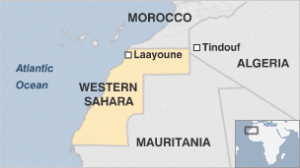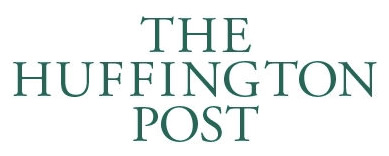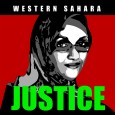In time of mounting pressure, UN reviews peacekeeping mandate in Western Sahara
In the coming days the United Nations Security Council is set to review the mandate of the UN Mission for the Referendum in Western Sahara (MINURSO).
In an era when human rights monitoring is a standard feature in peacekeeping missions worldwide, MINURSO operates as perhaps the only UN peacekeeping entity without a human rights component. As such, MINURSO cannot monitor or report on the human rights situation in Western Sahara or in the isolated Sahrawi refugee camps in Tindouf, Algeria.
According to the Sahrawi human rights activist Aminatou Haidar, whose hunger strike called international attention to the misuse of power by the Moroccan occupation and nearly cost her life last December, extending the mandate to include a human rights component is the most critical step the UN could take to ensure justice for the Sahrawi people.
Western Sahara, often called “Africa’s last colony,” was annexed by Morocco after Spain, the former colonial power, pulled out in 1975. Since that time, the Sahrawi people have strived for the right to vote on self-determination, which was first promised by Spain in 1974; reaffirmed by the International Court of Justice in 1975; and laid out by MINURSO in 1991. The referendum on the territory’s final status has been postponed repeatedly.
The Sahrawian Polisario Front calls for an independent state and has established a self-proclaimed government-in-exile in refugee camps in south-western Algeria. Morocco, on the other hand, advocates for an autonomy plan with Moroccan sovereignty of the territory.
While this impasse continues with no sign of immediate resolution, the Sahrawi people have suffered from serious violations of their individual and collective human rights. The violence against the Sahrawi population by Moroccan authorities has been cited by the U.S. State Department, Amnesty International, Human Rights Watch (HRW), Freedom House, the World Organization Against Torture, and Reporters without Borders.
Moroccan authorities continue to subject those who openly advocate self-determination or who denounce Moroccan human rights violations to various forms of repression, including imprisonment after unfair trials, beatings, arbitrary restrictions on the right to travel, and denial of the right to peaceful assembly, association, and expression.
As a case in point, last October seven prominent human rights activists were arrested after visiting the Tindouf refugee camps, where thousands of Sahrawi fled upon the Moroccan invasion. The seven are accused of threatening national security and of making public statements against the Moroccan authorities.
Front Line, a Dublin-based non-governmental organization working on behalf of human rights defenders worldwide, fears that the activists, who faced a military court in early January, could be subjected to harsh sentences — including the death penalty.

Courtesy of the BBC
This week the Robert F. Kennedy Center for Justice and Human Rights (RFK Center) and HRW issued a joint-statement urging Secretary General Ban Ki-Moon to act without delay in advocating for a human rights provision so that the Sahrawi people have a means of recourse or relief in the face of abuse.
The groups note that the Secretary General’s new report on Western Sahara, dated April 2010, states “The Frente Polisario called for a United Nations [human rights] monitoring mechanism, and Morocco expressed its opposition.” Indeed, policy watchers are openly questioning Morocco’s deteriorating approach to human rights.
While it is most fitting that MINURSO, with its two-decade presence on the ground, have the authority to monitor human rights, the RFK Center and HRW would also endorse the assignment of another UN mechanism to monitor and report on human rights in the area.
Aminatou Haidar, currently president of the Collective of Sahrawi Human Rights Defenders — an organization Moroccan authorities have refused to recognize — believes that including a UN-endorsed human rights mechanism would serve as a deterrent against future abuse and afford heightened protection.
As for her own situation (including being forcibly disappeared from 1987 through 1991, severely beaten by police as she was arriving at a 2005 demonstration, imprisoned for seven months after an unfair trial, and having endured her most recent hunger strike), Aminatou Haidar says, “With a human rights monitoring body, none of these things would so easily have happened.”
Barbara Becker is principal and founder of EqualShot, where she develops campaigns on behalf of social justice institutions worldwide. She is also a part-time faculty member at Columbia University’s masters program in strategic communications. The views expressed here are her own and are, in no way, meant to reflect those of her clients.



